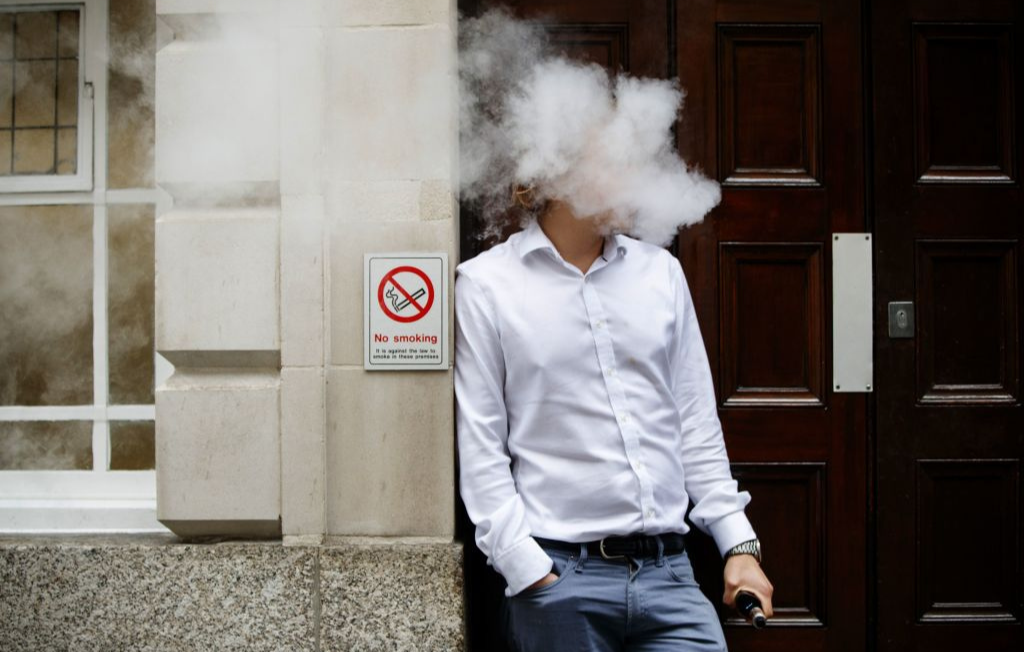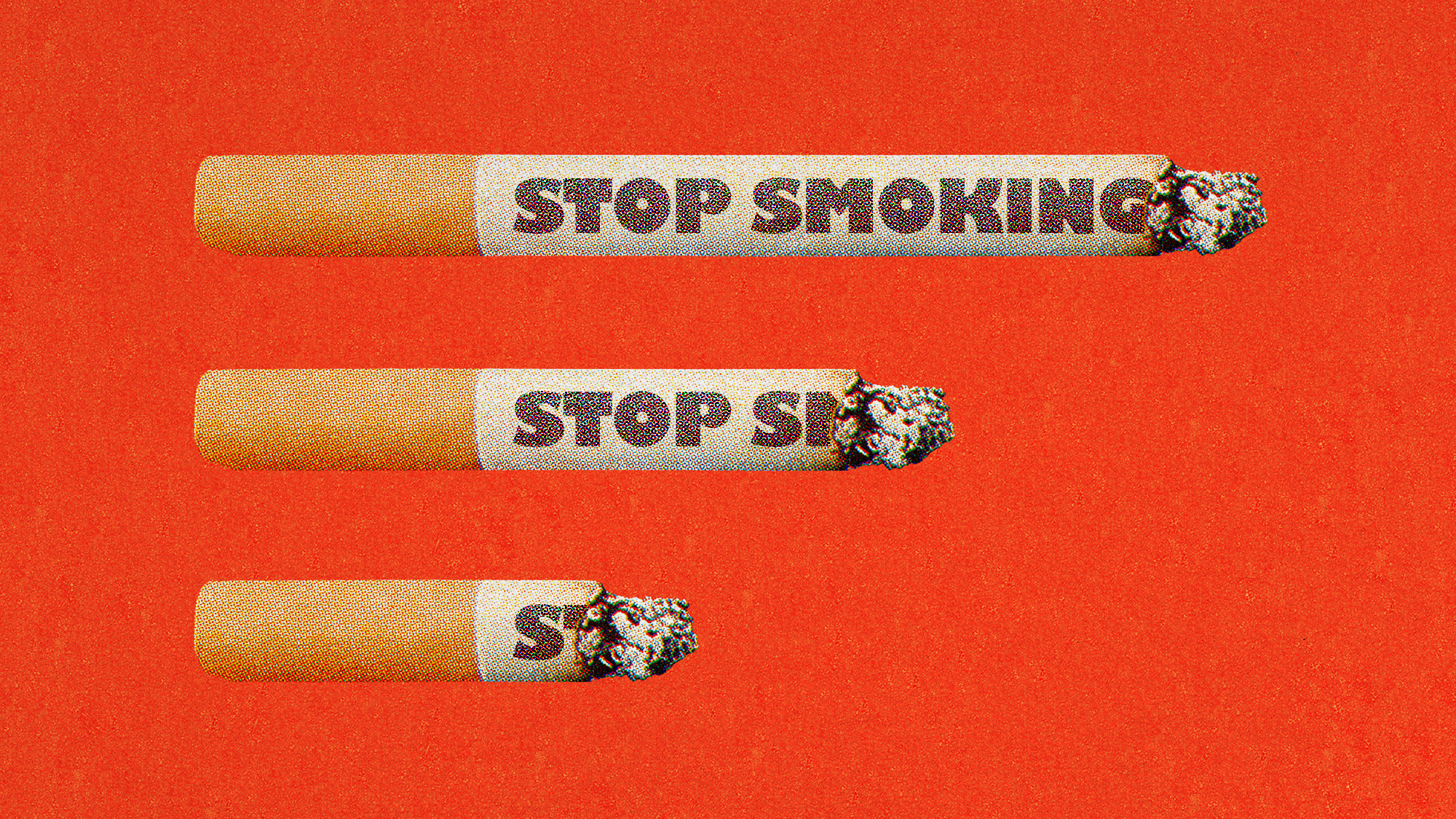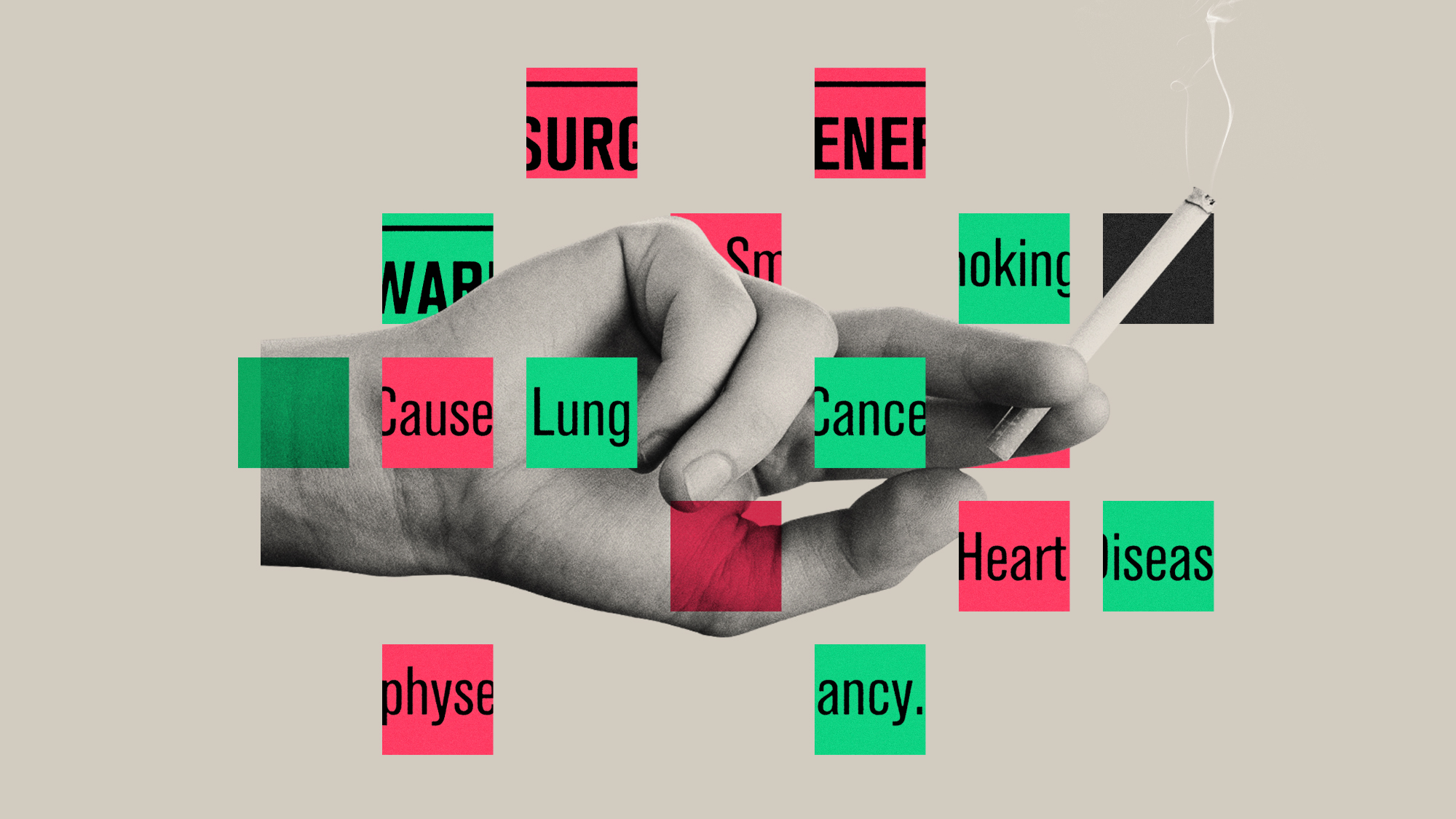The pros and cons of vaping
UK government's ban on disposable e-cigarettes suggests a shift in perceptions towards alternative nicotine products

A free daily email with the biggest news stories of the day – and the best features from TheWeek.com
You are now subscribed
Your newsletter sign-up was successful
When vapes first entered the UK market in the early 2000s, they were hailed as an effective way for smokers to quit cigarettes. But from 1 June, it will be illegal to buy or sell single-use or disposable vapes in England, Scotland and Wales. Northern Ireland is considering adopting similar legislation.
The government says that the colourful packaging, sweet flavours and cheaper price point of disposable vapes compared to rechargeable e-cigarettes makes them attractive to children. According to the charity Action on Smoking and Health, close to a million children aged 11-17 have vaped at least once, and around 230,000 say they do so multiple times per week. More than half said they used disposable vapes.
This is not the only reason for the ban. In 2023, recycling charity Material Focus released data showing that in the UK, eight single-use vapes were thrown away every second, and although companies were required to provide recycling options for their devices, most went into landfill.
The Week
Escape your echo chamber. Get the facts behind the news, plus analysis from multiple perspectives.

Sign up for The Week's Free Newsletters
From our morning news briefing to a weekly Good News Newsletter, get the best of The Week delivered directly to your inbox.
From our morning news briefing to a weekly Good News Newsletter, get the best of The Week delivered directly to your inbox.
In the long run, the government says it hopes to phase out nicotine consumption altogether, creating a "smoke-free generation" among those born after 2009. Sale of any nicotine products to this age group will be illegal. However, the government agrees that vaping can be helpful for smokers seeking to quit, and refillable vapes will continue to be sold in UK shops.
Here are some of the main arguments for and against the use of e-cigarettes.
1. Pro: better than cigarettes
E-cigarettes do not produce tar or carbon monoxide, "two of the most damaging elements" of inhaling tobacco smoke, said the NHS. Studies have found that, for cigarette smokers, switching to e-cigarettes has improved vascular health, and the lung function of asthma patients.
In 2015, Public Health England (PHE) said that e-cigarettes were estimated to be around 95% less harmful than smoking. A 2022 review affirmed that this statistic remained "broadly accurate, at least over short-term and medium-term periods", but emphasised that "this does not mean vaping is risk-free", especially for those who have never smoked.
A free daily email with the biggest news stories of the day – and the best features from TheWeek.com
2. Con: harmful substances
"No one is claiming that e-cigarettes are completely risk free," said senior lecturer Caitlin Notley and research associate Konstantinos Farsalinos on The Conversation. E-cigarettes don't contain tobacco but many contain nicotine, the addictive substance that's in cigarettes and cigars, as well as other toxins.
Vapes also do not create a "vapour", as many people believe, but rather an aerosol "made up of tiny particles", said the American Cancer Society. And "inhaling anything into the lung may result in changes to DNA", The Conversation authors continued, which could then increase the future risk of developing a disease.
3. Pro: help to stop addiction
Smokers are often physically dependent on nicotine, and may suffer "unpleasant withdrawal symptoms and experience cravings" if they try to quit, said Notley and Farsalinos.
Using a vape has been shown to have some of the highest success rates among people quitting smoking, at around 60% to 74% in 2019 to 2020, according to PHE. And vaping, combined with "support" from stop-smoking services, has been found to help people effectively kick their habit, said Cancer Research UK.
4. Con: appealing to teens
Selling e-cigarettes to anyone under the age of 18 in the UK is illegal, but the BBC said it was aware of rising numbers of complaints over "illicit or non-compliant vapes". In 2023, NHS England reported that 9% of teenagers reported vaping regularly, up from 6% in 2018.
The latest US National Youth Tobacco Survey found that nine out of 10 children who vaped used flavoured products, with fruity and sweet flavours being the most popular choices.
In June 2022, the EU proposed a ban on products that offer e-cigarette devices in flavours like "bubblegum, strawberry, and popcorn", which could "entice" people into vaping, said The Mirror. Last year, 12 countries backed a proposed EU ban on flavoured vapes, said Politico.
5. Pro: no secondhand smoke
The NHS says that the evidence suggests that the risk from passive vaping is small compared with smoking, but recommends you avoid vaping around babies and small children.
However, the World Health Organization warns that the aerosols generated by e-cigarettes – or electronic nicotine delivery systems – raise the concentration of "particulate matter" in indoor spaces, containing nicotine and other potentially harmful substances.
Secondhand vape exposure "probably isn’t a huge deal, but secondhand vape aerosol (the "smoke" from vaping) is definitely a thing, even if it smells like candy", said Healthline. The site advises vaping outdoors, and away from high-risk individuals including babies and children, pregnant people and those with lung conditions to reduce potential health risks.
6. Con: can lead to smoking
A review by the Australian National University published in 2022 found that non-smokers were three times as likely to take up smoking if they used e-cigarettes, compared to those who didn't. "This is a dream for tobacco companies and their retail allies," said senior lecturer Paul Grogan and professor of respiratory medicine Guy Marks, writing on The Conversation.
A similar trend has been found in the UK. The Action on Smoking and Health GB Youth Survey 2024 showed that 58% of 11- to 17-year-olds who described themselves as occasional or regular vapers went on to try cigarettes. However Cancer Research UK says "there's no strong evidence for a gateway effect".
-
 Bad Bunny’s Super Bowl: A win for unity
Bad Bunny’s Super Bowl: A win for unityFeature The global superstar's halftime show was a celebration for everyone to enjoy
-
 Book reviews: ‘Bonfire of the Murdochs’ and ‘The Typewriter and the Guillotine’
Book reviews: ‘Bonfire of the Murdochs’ and ‘The Typewriter and the Guillotine’Feature New insights into the Murdoch family’s turmoil and a renowned journalist’s time in pre-World War II Paris
-
 Witkoff and Kushner tackle Ukraine, Iran in Geneva
Witkoff and Kushner tackle Ukraine, Iran in GenevaSpeed Read Steve Witkoff and Jared Kushner held negotiations aimed at securing a nuclear deal with Iran and an end to Russia’s war in Ukraine
-
 Quit-smoking ads are being put out
Quit-smoking ads are being put outUnder the radar The dissolution of a government-funded campaign could lead to more smokers in the future
-
 China's soaring dementia rates
China's soaring dementia ratesUnder The Radar Government launches action plan after cases in China increase 50% faster than global average
-
 The tobacco industry could be the beneficiary of health agency cuts
The tobacco industry could be the beneficiary of health agency cutsThe explainer Anti-tobacco initiatives may go up in smoke
-
 Is this the end of cigarettes?
Is this the end of cigarettes?Today's Big Question An FDA rule targets nicotine addiction
-
 The complicated problem of banning menthol cigarettes
The complicated problem of banning menthol cigarettesThe Explainer Banning menthol smokes will save lives, public health officials say. But this is an election year.
-
 The dramatic rise of vaping in the UK
The dramatic rise of vaping in the UKfeature Increasing numbers of children are using e-cigarettes adding to the growing chorus of alarm over the potential impact on public health
-
 New Zealand’s new smoking ban
New Zealand’s new smoking banfeature Anyone born in 2009 or later will not be able to buy cigarettes but there are concerns about a growing black market
-
 Does nicotine protect against coronavirus?
Does nicotine protect against coronavirus?In Depth New study suggests smoking may cut risk of infection - but does not advise taking up the fatal habit